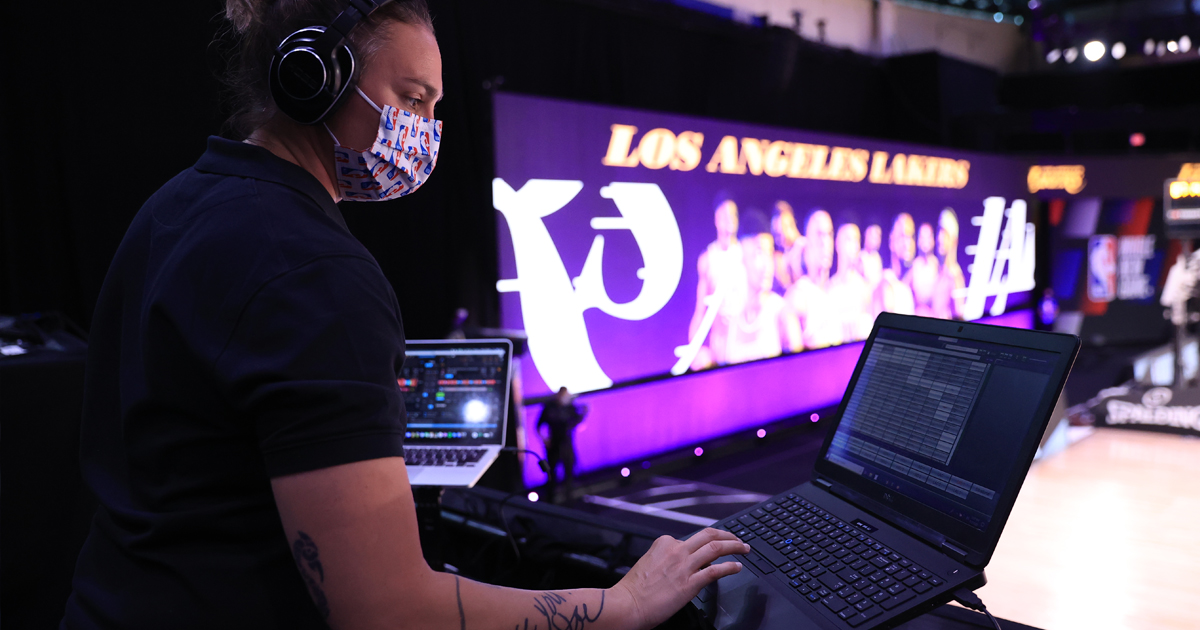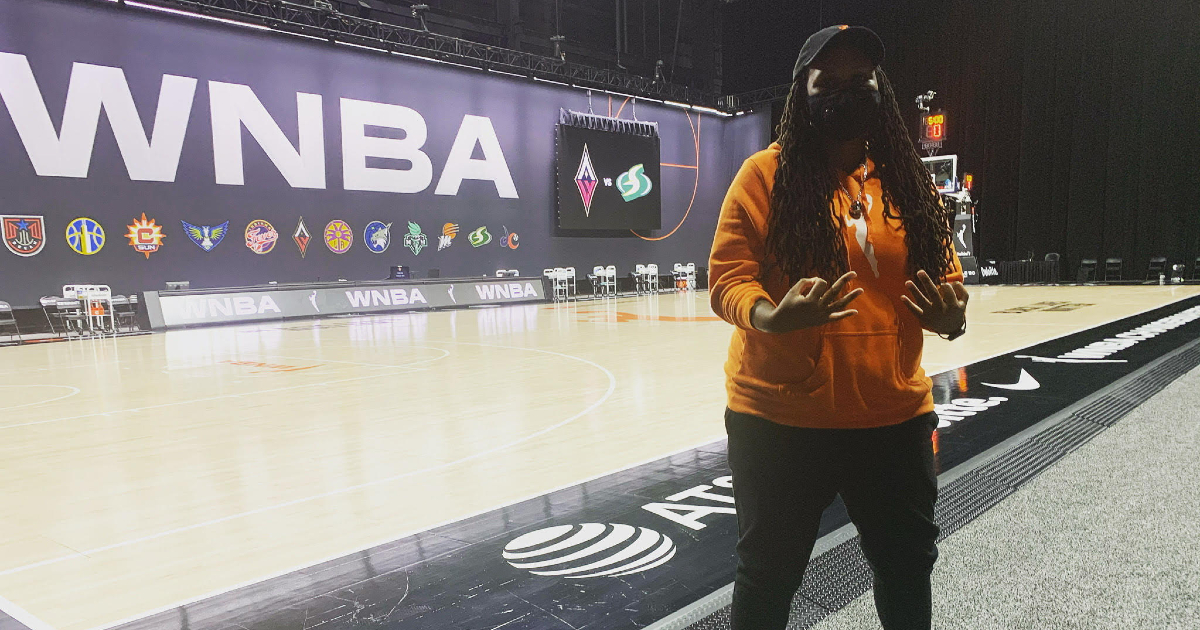NBA
DJ Shawna Talks DJing the NBA Bubble, Going Viral, and Thriving in the COVID-19 Era
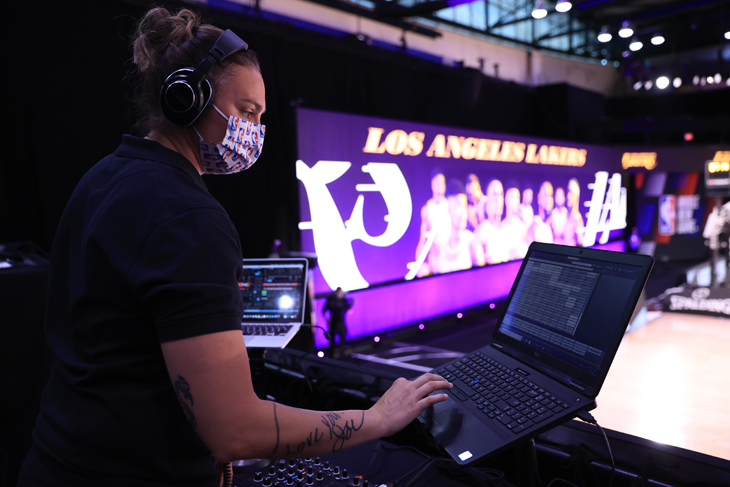
(Source: DJ Shawna)
DJ Shawna is the official DJ for the Milwaukee Bucks. She’s also a DJ who twice went viral during the NBA’s just-completed “bubble” season in Orlando, Florida. For the seasoned spinner and former college basketball player, her COVID-19-shortened NBA campaign included championship-level achievements. Shawna made LeBron James dance, Carmelo Anthony rap, and Chris Webber speak at length about the greatness of her skills during a TNT broadcast. In the midst of these accomplishments, she learned self-confidence, increased her skillset, and embraced her success while learning the true definition of the idea that “comparison is the thief of joy.”
Paraphrasing a lyric from Drake, Shawna notes that the scenario that allowed her to travel to the NBA’s bubble “went from 0 to 100 real quick.” She’d been working for the Bucks for four years, and 2020 was her first as the team’s official DJ and in-game producer. “Johnny Watson, who’s the head of all game production at the Fiserv Forum [the Milwaukee Bucks’ home arena] texted me to see if I’d be interested in DJing at the bubble. I filled out a questionnaire that was less than 10 questions long, from the NBA, a few days later. A few days after that, I was on my way to Orlando.”
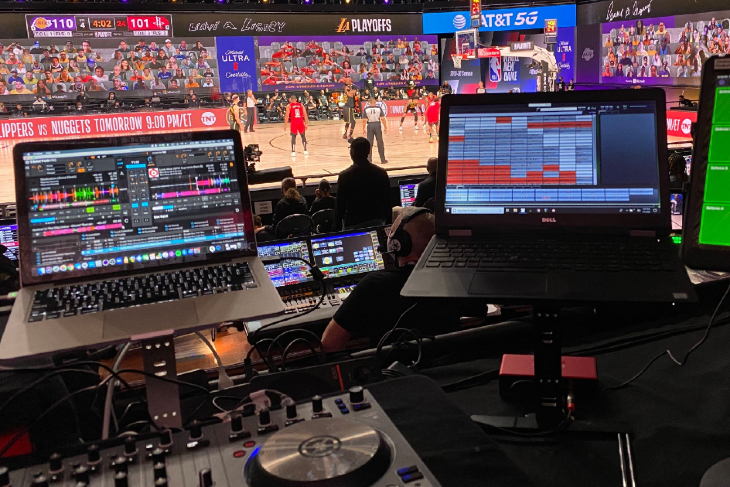
Once there, the NBA’s short season found Shawna (not unlike WNBA “wubble” DJ, DJ Heat) as one of four DJs (and the only female) for all of the league’s 30 teams. Playing as “home court” DJ for teams from two dozen-plus different cities would seem difficult on the surface, but ultimately proved to create a fun challenge.
“Typically, the teams wanted to hear the same five artists: Pop Smoke, all the ‘Babies’ – Da Baby, Lil Baby, you know, plus Nipsey Hussle, and Drake,” Shawna says, jokingly. She recalls the Miami Heat’s preference for Pitbull, the Brooklyn Nets wanting “non-stop Biggie,” and DJing for the Houston Rockets being fun because she could play numerous Paul Wall throwback tracks. Player warmups would also take two to three hours before the game, so she oftentimes added extended Motown, old school hip-hop, R&B, and disco sets alongside her playlists.
Shawna’s aforementioned viral social media moments were also key parts of the experience. Regarding her shoutout on TNT from Chris Webber and Brian Anderson, Shawna notes that it was the first game back after the entire Milwaukee Bucks franchise’s social justice boycott, “so it was already special.” The Los Angeles Lakers were significantly ahead of the Portland Trailblazers, and with 90 seconds left in the game, NBA Hall of Famer and TNT color commentator Webber took particular note of her work and the work of DJs in the bubble in general. Capping off her unsuspecting call out by playing Sade‘s jazzy ballad “Smooth Operator” as LeBron James celebrated closing out the series, it provided her a tremendous media boost.
Words cannot express how much love and gratitude I am feeling. So much love for @realchriswebber and @bandersonpxp for the shout out and kind words in last night’s Playoff game on TNT. (Thought Thread) pic.twitter.com/Awj6VaTBDA
— DJ Shawna (@DJShawna) August 30, 2020
However, though she spun numerous times in the bubble, Shawna’s still searching for her self-defined “DJ high” in the midst of a trying year. “I don’t think I got my personal desire to spin in clubs again out of my system. There’s no feeling of ‘call and response’ when you’re DJing a basketball game,” she notes. “Seeing Carmelo Anthony rapping along to Cameo‘s ‘Word Up’ — or anything else that happened in the bubble — filled my heart up with pride differently than a typical festival, bar, or club set. It wasn’t my show. I was in the bubble to add value to the NBA players and the league’s day.”
Related Post: DJ Heat Discusses DJ Life in the WNBA’s COVID-19 ‘Wubble’
DJ Heat Discusses DJ Life in the WNBA’s COVID-19 ‘Wubble’
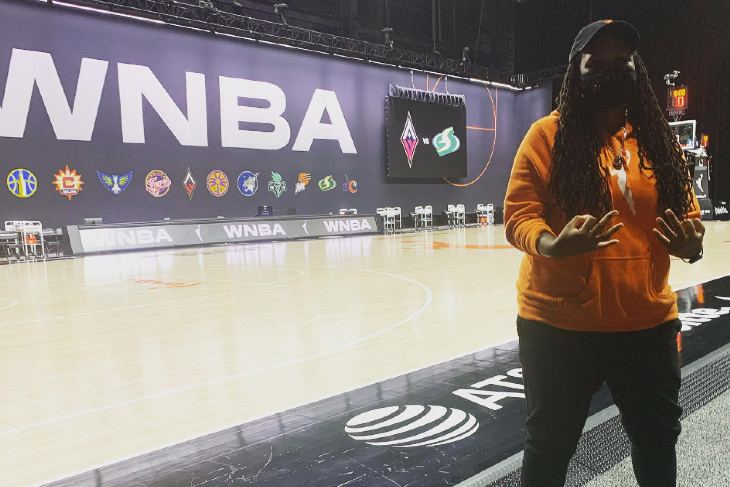
DJ Heat on the court at the WNBA’s “wubble” before a WNBA Finals game. (Source: DJ Heat)
Usually, August finds NBA and WNBA teams either in the midst of training camp or in the midst of the playoffs, respectively. However, due to the coronavirus pandemic, both leagues suspended regular play, and instead created condensed seasons for players interested in playing inside of tightly-monitored “bubble” communities in Orlando, Florida. Looking to replicate the exact feel of live basketball, fans were involved via Zoom-style courtside integration. As well, just like in their home arenas, DJs — like the WNBA’s Washington Mystics’ (and NBA’s Washington Wizards) official DJ, DJ Heat — were called upon to provide thumping soundtracks to add to the action. The experience that showcased how well sports leagues have adapted to these trying times.
“This company called 3PT Productions contacted me to play in the ‘wubble,’ (shorthand for “WNBA bubble”)” says DJ Heat. Heat’s a DC native who’s has been a club, radio, and live event DJ for nearly two decades but has worked with the Mystics as their game DJ for the past four. “I worked with them during NBA All-Star Weekend last year in Chicago. When they were asked to do the WNBA game production for the 2020 season, they needed three DJs, and they asked me to be one of them. I was down. I wasn’t busy really doing anything else, so it was a great opportunity.”
The notion of “home games” in a controlled environment presented a fascinating notion for Heat. “Typically, I’m just the Mystics’ DJ. But, in the wubble, I was every team’s ‘home court’ DJ at least once.” Playing music correlated with key audio elements from each team’s home arena, and their city’s musical heritage ultimately provided a “home court advantage” of sorts for DJs to include in their in-game mixes.
“For instance, when I DJ for the Mystics usually, there’s a lot of [legendary, percussive, and DC-born sound] go-go and [DC suburbs-based rapper ] Rico Nasty. Comparatively, for the Los Angeles Sparks, I got to play all of the west coast hip-hop and g-funk I loved as a child.”
Heat notes particularly that because she was sitting courtside and thus immediately next to gameplay and visible to fans at home, it impacted the number of interactions she had and added to the laid-back, yet competitive game environment. “As many requests were made by players and referees on the court as were made by fans on social media,” she recalls.
“I was DJing for the New York Liberty,” Heat starts. “The referee for the game was from Yonkers. After I played Notorious B.I.G.‘s remix to Mary J. Blige‘s ‘Real Love,’ he immediately told me that Mary was from Yonkers, too. He then requested some [fellow Yonkers-based artists] DMX and The Lox. When they dropped, I could see him give me a smile and thumbs up from the court during TV time outs.”
She continues,
“Everyone, even the ESPN reporters, would walk over and ask to hear songs. Even more, I’d try to tailor small moments like — during the WNBA Finals — playing the instrumental to [South Carolina based rapper] Lil Ru’s [2009 regional hit] ‘Nasty Song’ for Las Vegas Aces star Aja Wilson, who’s also a South Carolina resident. My social media lit up as people at home watching the game heard the instrumental and couldn’t believe I’d play it. But, playing in-game sets including a lot of unexpected music like that is also what made the wubble so unique.”
As it appears that the coronavirus could stretch into another basketball season, Heat cites the togetherness forget by the unique circumstances as a reason why she’d likely do it again.
“The players, referees, team staffs, production crew, and yes, DJs too, we all developed a bond because of the experience. Even though there was no crowd, we’re all professionals who feed off of the energy of one or one-thousand people. So, no matter what, we got into our zones for game-playing or providing entertainment.”
Related Post: DUSE Magazine Drops Documentary on DJcity Canada Director 4KORNERS
Popular
-
May 23, 2023
The Best Remixes for Wedding DJs 2023
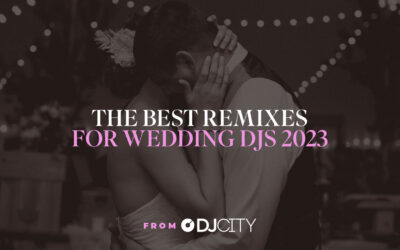
Wedding season has arrived! DJcity’s Remix Director Sir Marcus has put together a list of wedding-friendly tracks guaranteed to freshen up your DJ sets and...
-
December 22, 2023
Our Biggest Sale of the Year: Join DJcity for $1 🚨

We just launched our biggest sale of the year! Get 90% off a DJcity membership and join for just $1 (regular price $10) for the first month when you check...
-
December 18, 2023
Top 30 Remixes, Bootlegs, and DJ Edits of 2023
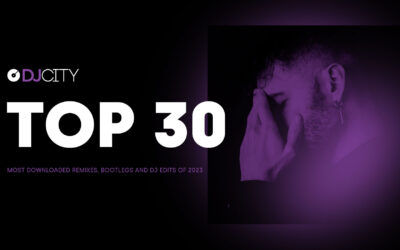
ATCG. Last Thursday, DJcity revealed its most downloaded tracks of 2023. Today, we dive deeper to uncover the most popular remixes, bootlegs, and edits of...
-
February 15, 2022
New DJcity Pricing Plans Now Available

Here at DJcity, customer satisfaction is crucial, and therefore we always take input and feedback from our customers and DJ community very seriously. Due t...
-
April 12, 2024
New and Notable Tracks: Apr. 12
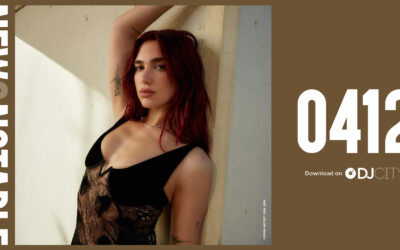
New tracks that DJs should know about.
-
July 6, 2022
Afrobeats and Dance added as Main Genres on DJcity
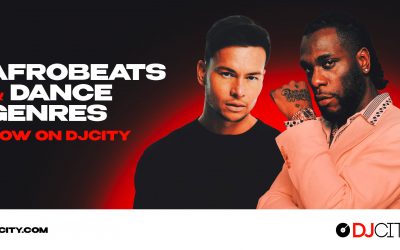
At DJcity, we are always working to make sure that the way our record pool functions reflects the needs of our users. Therefore in our latest update, we sw...
-
March 24, 2020
Salt-N-Pepa’s ‘Push It’ Remixed by Safety First!: DJcity Exclusive
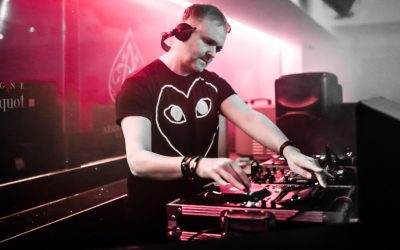
Safety First!. (Source: Safety First!) Veteran Manchester-based DJ/producer Safety First! has released a DJcity exclusive remix of Salt-N-Pepa‘s hip-hop cl...
-
December 20, 2022
Top 30 Remixes, Bootlegs, and DJ Edits of 2022
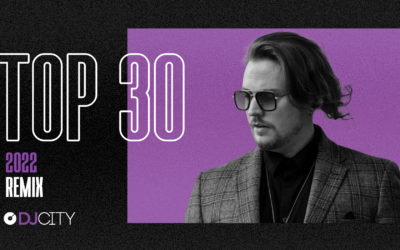
GRAYMATTER. Yesterday, DJcity revealed its most downloaded tracks of 2022. Today, we dive deeper to uncover the most popular remixes, bootlegs, and edits o...
-
April 5, 2024
New and Notable Tracks: Apr. 5
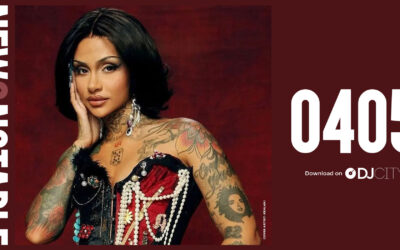
New tracks that DJs should know about.
-
April 11, 2024
Aurelios Releases ‘Mr. Vain’ on DJcity Records
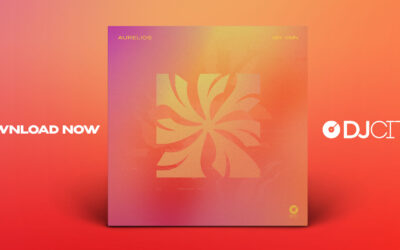
Italian DJ/producer Aurelios drops his first release on DJcity Records titled "Mr. Vain." The track is a hard-hitting house remix of the 90s club classic w...

